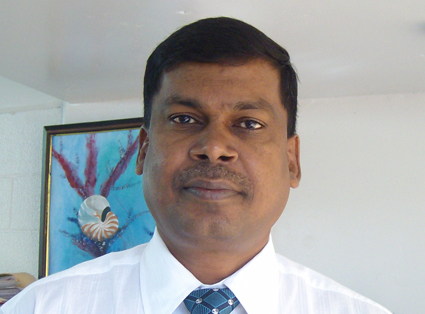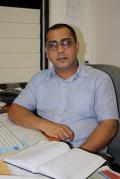
SUVA (Pacific Media Watch / Pacific Scoop): Fiji is at a critical juncture in its history, with an opportunity to build an inclusive and a non-racist society, says a leading economist.
This opportunity can be realised by building solid foundations for democracy, says professor Biman Prasad.
The University of the South Pacific academic said that media organisations must be respected and supported, and the rule of law has to be respected if Fiji is to get out of its stalemate.
This is one of several calls Prasad has made over the years for greater media freedom and civil rights in Fiji, which has been under military rule since December 2006, when army commander, Commodore Frank Bainimarama, took power in Fiji’s fourth coup.
In this recent address to the Fiji Teachers' Union in Suva, Prasad highlighted the importance of the right to expression.
He stated that this should start at the school level. Students need to be taught to enjoy their own rights and to respect others’ rights.
Fiji off track
Prasad’s presentation was titled The Status of Teachers in Fiji’s Emerging Democracy.
He said Fiji had lost way since independence in 1970. Back then the emphasis was strength of diversity, harmony and a shared vision.
This was upended by the 1987 coups. A healthy annual average growth rate of about 5.5 % was interrupted.
Since then, three more coups, and the trashing of two multiracial constitutions had seen the country “struggle” and “muddle” through a poor economy, with around two per cent growth per annum.
Prasad noted that democracies are not built overnight, but even then constitutions are changed peacefully and progressively, rather than by force.
“Forced changes do not last,” he stated.
With elections scheduled for 2014, Prasad said that the country is at a critical juncture.
“These junctures always provide us an opportunity to make good or bad decisions,” he said.
Uncertain future
Fiji has faced several critical junctures in the past. At every critical juncture, Fiji had gone back into a "vicious circle of instability and decline”.
Prasad said countries like Mauritius have spectacularly outperformed Fiji because they are stable. Around 87 per cent of Mauritians own their own homes.
Medical, including heart surgery, is free. So is education, from pre-school to tertiary level. Fiji, meanwhile, has languished in poverty, and unemployment, with a declining quality of public service and an increasing loss of talent through migration.
Prasad’s speech highlights that the question of democracy was critical. He said that the environment in which our children study can determine whether they become conformist or creative and productive.
“As Gandhi once said ‘democracy is not a state in which people act like sheep. Under democracy individual liberty of opinion and action are jealously guarded’.”
Paying tribute to teachers, Prasad stated that they should be fairly compensated for their work.
He urged teachers to “encourage more democratic values amongst students”.
Read Prasad’s full address here
This work is licensed under a Creative Commons Attribution-NonCommercial 3.0 New Zealand Licence.




